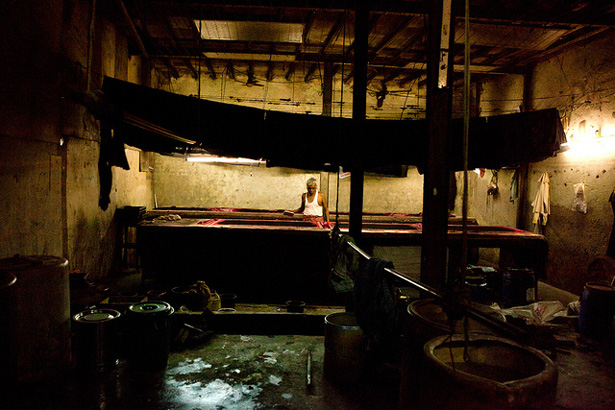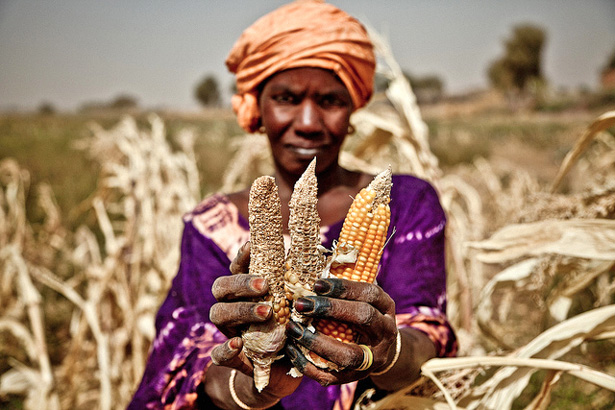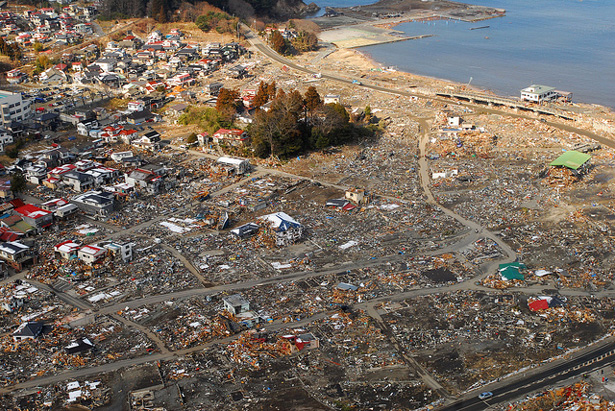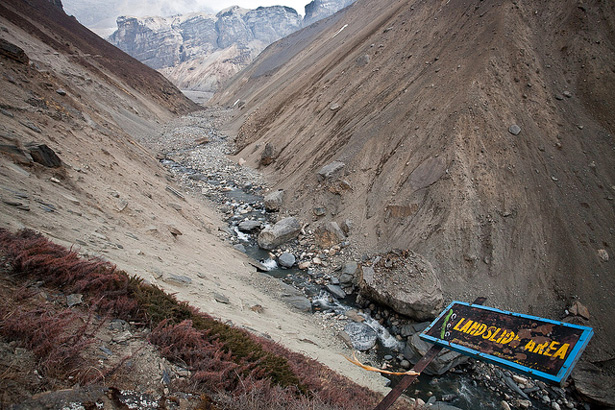-
New Film Explains Blue Ventures’ Integrated Approach to Development and Conservation in Madagascar
›Blue Ventures has become a leader in the population, health, and environment (PHE) community through its work with the remote, semi-nomadic Vezo people living along Madagascar’s southwestern coast. In a new short documentary, The Freedom to Choose: Empowering Communities to Live With the Sea, Blue Ventures describes how their approach has helped the Vezo respond to the combined challenges of resource scarcity, poor reproductive health, and unsustainable livelihoods.
-
Climate Change Will Cause More Migration, But That Shouldn’t Scare Anyone
›
Last year a Kiribati man, Ioane Teitiota, claimed asylum in New Zealand, stating that his home island, which is on average just two meters above sea level, was becoming uninhabitable thanks to rising seas. So-called “king tides” routinely wash over entire portions of the archipelago.
-
Climate Change and National Security in an Age of Austerity: The 2014 Quadrennial Defense Review
›March 7, 2014 // By Kate Diamond
Earlier this week, the Department of Defense released its first Quadrennial Defense Review since fiscal cliffs, shutdowns, and spending cuts hit the federal government. Not surprisingly, “austerity” shows up in almost every chapter of the report. What shows up even more? Climate change. For the second QDR in a row, the Pentagon has called out climate change as a “significant challenge for the United States and the world at large.”
-
USAID Administrator Rajiv Shah on Public-Private Partnerships and the Future of Aid
› What’s the best way for America’s chief development agency to help other countries reach prosperity and democracy? Increasingly, it’s creating partnerships not just with other governments, but with the private sector too, says USAID Administrator Rajiv Shah in this week’s podcast.
What’s the best way for America’s chief development agency to help other countries reach prosperity and democracy? Increasingly, it’s creating partnerships not just with other governments, but with the private sector too, says USAID Administrator Rajiv Shah in this week’s podcast. -
Have Ideas About Reducing Urban Poverty in the Developing World? In Graduate School? Apply Within
›
The Wilson Center’s Urban Sustainability Laboratory, in partnership with USAID, International Housing Coalition, World Bank, and Cities Alliance, is pleased to announce the 5th Annual Urban Poverty Paper Competition for graduate students. The competition calls on students currently enrolled in a Master’s or PhD program to submit paper abstracts on topics relating to urban poverty in the developing world.
-
System Shock: To Prevent the Next Disaster, Change the Paradigm
›
In the wake of natural disasters, the idea that systematic change might be needed to prevent future crises often takes a backseat to restorative efforts. But as disasters become more common, there is often a blurring of disaster response and development initiatives.
-
Bouncing Forward: Why “Resilience” Is Important and Needs a Definition
›
As policymakers respond to the threat of climate and environmental change, the concept of resilience has found itself at the center of discussion. Few scientists and policymakers, however, can come to a consensus on how to define, evaluate, and build resilience.
-
Susannah Fisher, International Institute for Environment and Development
In Nepal, Measuring Climate Change Resilience From the Community Up
›February 11, 2014 // By Wilson Center Staff
The original version of this article, by Susannah Fisher, appeared on the International Institute for Environment and Development.
Nepal’s vulnerability to a warming climate became clear in May 2012 when the Seti River burst its banks during flash floods and landslides that killed more than 60 people. Scientists say such events are likely to become more common as the world warms, so communities need to adapt.
Showing posts from category disaster relief.



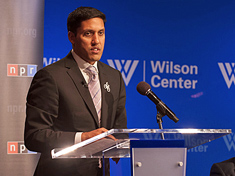 What’s the best way for America’s chief development agency to help other countries reach prosperity and democracy? Increasingly, it’s creating partnerships not just with other governments, but with the private sector too, says USAID Administrator
What’s the best way for America’s chief development agency to help other countries reach prosperity and democracy? Increasingly, it’s creating partnerships not just with other governments, but with the private sector too, says USAID Administrator 